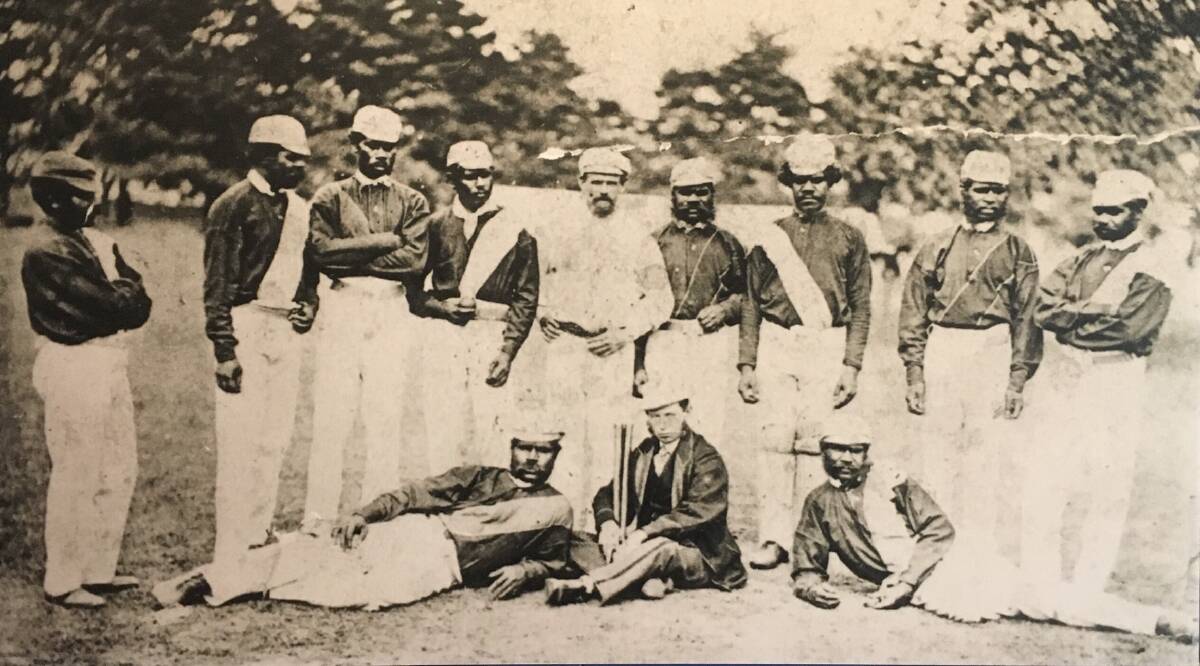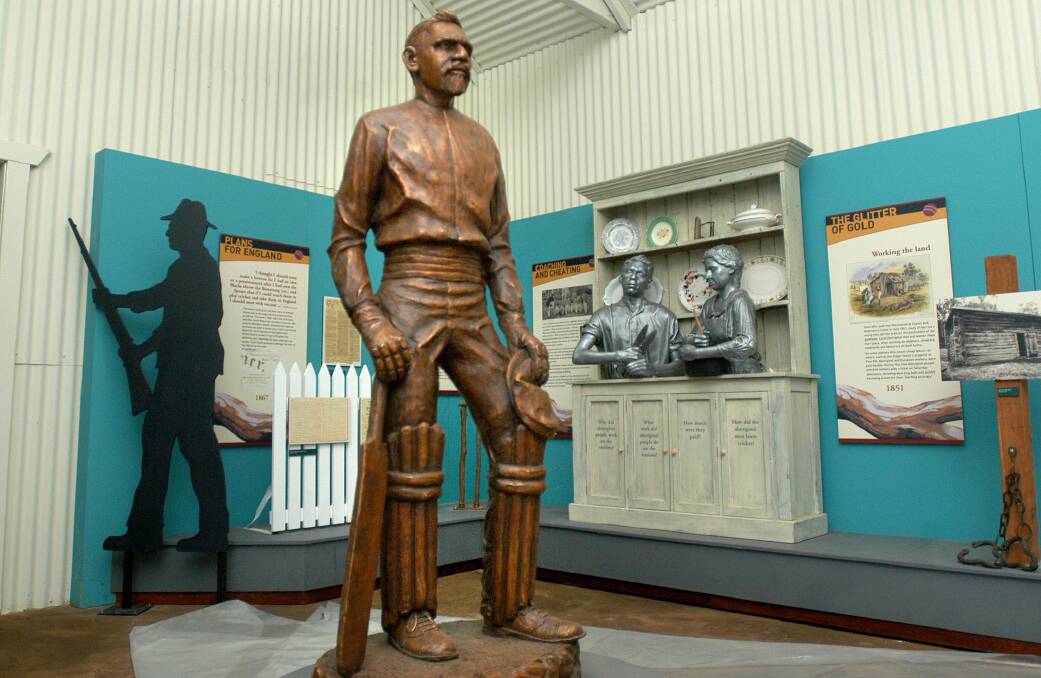
One of the Wimmera's finest sporting pioneers has been inducted into the Australian Cricket Hall of Fame, becoming the first Aboriginal player to receive the honour.
Subscribe now for unlimited access.
$0/
(min cost $0)
or signup to continue reading
Johnny Mullagh - a Jardwadjali man from Harrow, whose real name was Unaarrimin - was the centrepin of the 1868 Aboriginal XI during their tour of England, when they became the first Australian sporting team to tour internationally.
Mullagh played 45 of the 47 matches on tour, scoring 1698 runs at 23.65, bowling 1877 overs, of which 831 were maidens, and taking 245 wickets.
"Johnny Mullagh and the 1868 Aboriginal team paved the way for so many future Australians to showcase their skill and talent on the world stage," Australian Cricket Hall of Fame Chairman Peter King told cricket.com.au.
"To consider the team's feats were in an era dictated by inequality makes their story even more remarkable and worthy of recognition."
Said to be one of the nation's best ever cricketers, Mullagh was introduced to the sport while working as a station hand in the Wimmera.
At the time cricket was popular among the Aboriginal stockmen and station hands employed around the region.
Edenhope station owner William Hayman formed a team of these cricket lovers in early 1866, bringing together men from Jarwadjall, Guditjmara and Wotjobaluk country.

Hayman later handed over coaching duties to Victorian captain and founder of Australian rules football Tom Wills, who lead the side at the MCG on Boxing Day 1866, in front of one of the biggest crowds for the time.
"Johnny starred in the third cricket match ever scheduled on Boxing Day at the MCG in 1866 where he was his team's highest runs scorer in both innings with scores of 14 and 33 respectively before becoming the standout performer on the 1868 tour of England," Mr King said.
"The Australian Cricket Hall of Fame is proud to honour Johnny Mullagh for his contribution to Australia's cricketing history and national identity."
On his return from the 1868 England tour, Mullagh became a professional for the Melbourne Cricket Club, playing eight matches, and continued playing club cricket in Harrow until 1890.
At the end of his cricket days, Mullagh retreated to a solitary existence in a small bush camp, known as "Johnny's Dam", just outside Harrow.
MCC library journals said on his passing in 1891, Mullagh was buried with his bat and stumps, and each cricketer from Harrow threw a sprig of blackberries and yellow flowers into his grave, symbolising the club's colours.
Mullagh's connection to the MCG, and his stature in Australia's cricket history, have been recognised this year with the introduction of the Mullagh Medal, to be presented the player of the match of the Boxing Day Test.
Different descendants of the 1868 team will present the medal each year.
Did you know you can receive updates straight to your inbox? To make sure you're up-to-date with news from across the region, sign up below.


